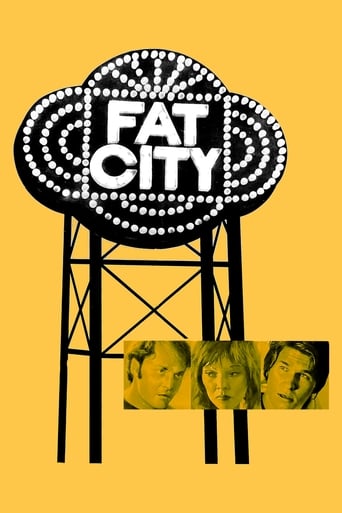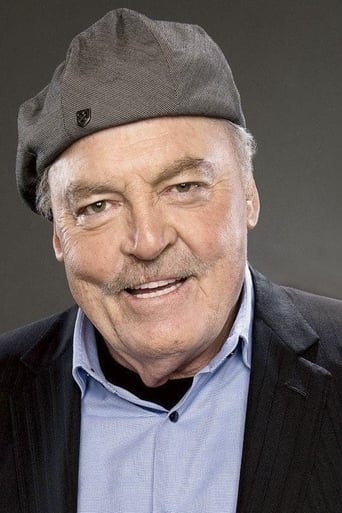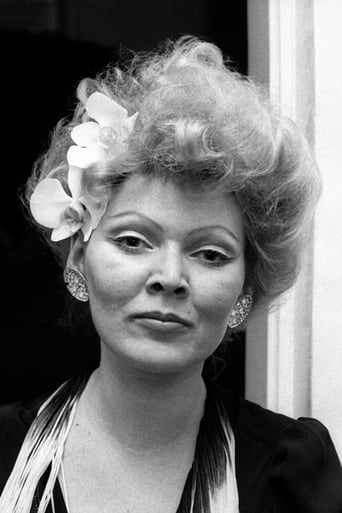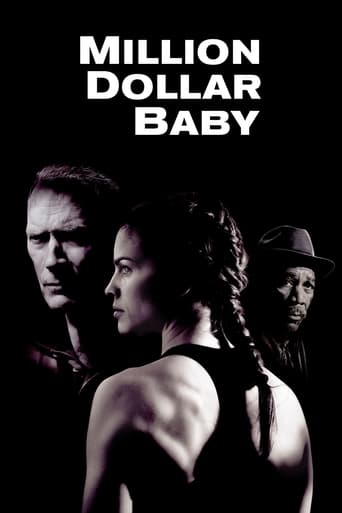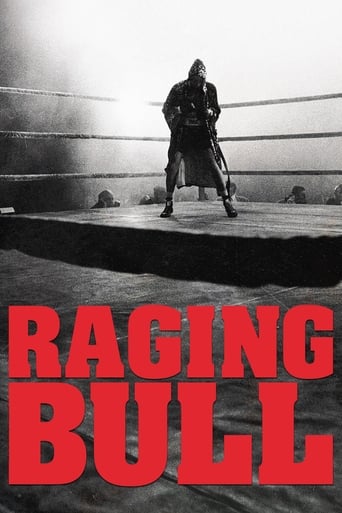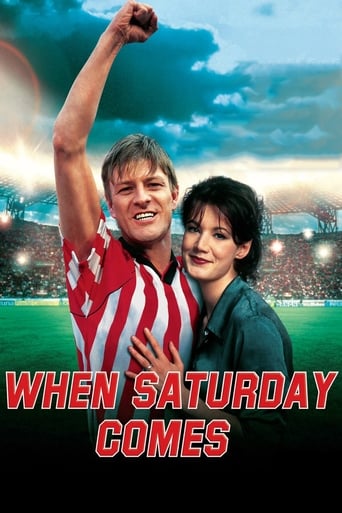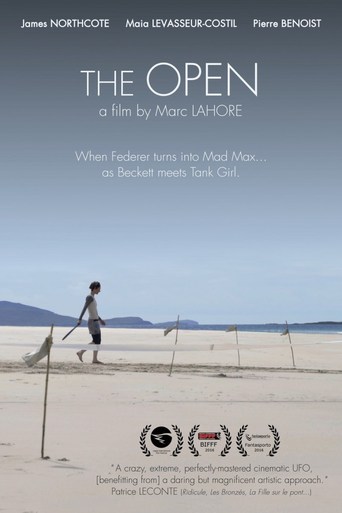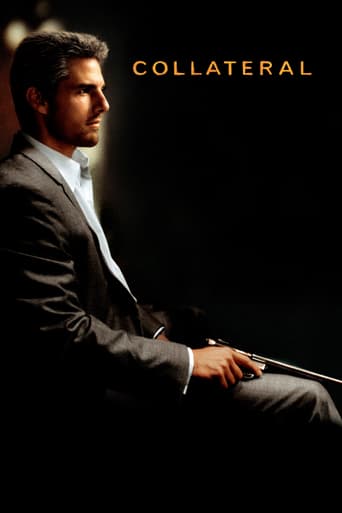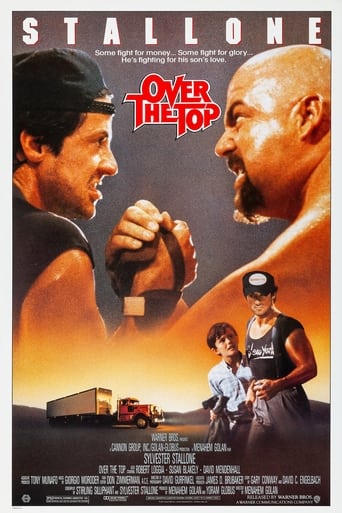Fat City (1972)
Two men, working as professional boxers, come to blows when their careers each begin to take opposite momentum.
Watch Trailer
Cast


Similar titles
Reviews
John Huston's look at the grim world of boxing, as seen from the lowest possible level of the "sport." Story follows two boxers in Stockton, California. Tully (Stacy Keach) is a one-time fighter now working as a migrant farm hand. He thinks he has one more comeback in him, but he's been living the life of an alcoholic for years. Ernie (Jeff Bridges) is a fresh-faced kid who wanders into the sport when he's taken on by a local manager (Nicholas Colasanto). Story follows their fights and shows the grim reality of this sport of losers.Susan Tyrrell is superb as Oma, the alcoholic woman Tully takes up with. She lives on the edge of the garbage heap of humanity and lives only to drink. Tyrrell's performance is electrifying and heart-breaking and earned her an Oscar nomination. Her long scene with Keach, sitting at a bar and drinking cream sherry, is a complete textbook acting class wrapped up in a brilliant performance.Candy Clark plays Faye and Art Aragon plays Babe.
Glancing with a documentary eye, John Huston's FAT CITY opens with Kris Kristofferson's lugubrious HELP ME MAKE IT THROUGH THE NIGHT to accommodate to a downbeat tonality, and concomitantly fills the screen with montages of the story's locale and denizens, a rundown California town called Stockton in the 50s, and then introduces Billy Tully (a cleft-lipped and hair- receding Keach), a divorced, childless peckerwood and former boxer on the brink of turning 30, doing odd jobs from hand to mouth, he aspires to return to the ring, but both physically and mentally he hasn't been conditioned to reclaim his glory. Meantime, a young stud Ernie Munger (Bridges), recommended by Billy, starts his professional boxing days but is he really the "one in a million" material which Billy sees in him? The script is penned by the author of its source novel, Leonard Gardner, which warrants fidelity to a large extent but also leans more on Billy than Ernie in the narrative. The boxing scenes, to the lights of a pugilism outsider, are less vicarious and impactful than its more famed cinematic cousins and sometimes one can discern they are playacting, both Keach and Bridges are not toned up in a pro's shape, but that might be the case here, Billy is over the hill, and the allusive reason behind his hard-earned victory is more due to his opponent's deteriorating health than his own prowess. As for Ernie, he loses both two matches presented on-screen and has a soft belly which both literally and metaphorically implies that he is a younger version of Billy, getting married out of onus rather than love, the road ahead of him looks glum, and it speaks volumes in the final close- up where the two boxers sitting sipping their coffee in concert but inside they are miles away from each other (Billy is a lush Ernie tries to avoid), without obvious effort of fumbling for words, that silent moment could be the only time they share before parting company for keeps, no matter how similar their trajectories will be, both Keach and Bridges (at a tender age of 23) are extraordinary players of conveying connotations and embodying nuances. A boisterous Susan Tyrell snatches an Oscar nomination for her terrific turn as Oma, a barfly who strikes a romantic relationship with Billy, but she is a damaged goods through and through, married twice before, habitually drenched in the hard stuff, Billy might be merely a fling to her while her current lover is in the jug. The two-handers between them are coruscating with sheer communion (in the seedy bar where they engages themselves from small talk to wearing their affectionate hearts on their sleeves), or blistering intensity (in their equally mangy bedsit where Huston pulls off the most kitchen-sink spat in the American map), she is an attainable lure for a rough diamond like Billy, but she will do him no good, and the vicious circle will never cease to repeat, time and again, because loneliness brings people together but it takes a helluva luck to be able to stick together.In a word, FAT CITY is on the top rung of Huston's corpus, a strangely disconsolate but whole- heartedly candid social critique of the stagnation and cul-de-sac facing by the have-nots, bestowed with a sublimely subdued texture with unobtrusive dexterity, but as a boxing drama, it still looks rough-hewn and conspicuously pulls its punches in terms of veracity.
For a prize fighter, winning is everything, but if you're a loser when you climb into the ring, you're still going to be a loser when you come out, even if you KO your opponent. Such might be the moral of this very atypical sports movie, starring Stacy Keach and Jeff Bridges as aspiring fighters in the lower echelons of the boxing game in and around Stockton, California.John Huston was one of the most commercially and popularly successful of mainstream Hollywood directors, making such major classics as The Maltese Falcon, The Treasure of the Sierra Madre, and The African Queen, yet most film historians and critics have been reluctant to rank him among the best cinematic artists. Fat City makes it hard to see why: this gritty, realistic film is one of those great films which surprises you by how much more it seems like real life than like a movie. Keach and Bridges both give what may be their best performances, and Susan Tyrrell, an actress better known for stage work, gives an unforgettable performance as an alcoholic barfly, for which she was nominated for an Oscar, and she should have won.Fat City is not at all a typical sports film, which by Hollywood convention must show a hero overcoming early difficulties to rise to stardom, nor is it really about boxing, though it includes an extended fight scene which may be the best ever included in a Hollywood film -- the fact that Huston was a prize fighter himself in his youth no doubt adds to the authenticity of the prize ring atmosphere. But this is a film about people, very flawed people who manage to hold onto some shreds of integrity and to be kind to one another, despite the fact that they are all in their own desperate situation. The atmosphere of the seedy towns and endless fields of California's Central Valley, a rare location for major films, is portrayed with great vividness and accuracy.All in all, not a fun film, but an unforgettable one. The Sony Home Entertainment DVD is of acceptable quality, but this film really needs to be remastered and put on Blu-Ray.
'Fat City' has an solid and hard-won reputation. It was released to the cinema in 1972 with little fanfare. It got good notices but was one of those films that could not expect immediate success with a fickle public prone to more showy attractions; today it has a loyal following amongst those not oblivious to its virtues. As embarrassing as it is to admit, on discovering 'Fat City' I clasped it to my heart in gratitude: I had found something worthy of my attention that was not Hollywood vulgarity nor mindless escapism for the great unwashed. It was a film with backbone, a film with brain. 'Fat City' is an unforgettable portrayal of lost and lonely people quietly losing what is left of their lives. They struggle to survive but the struggle is pointless and they are left at the mercy of an unyielding fate that can only be guessed at, because of the film's refusal to pander to audience expectations of mindless resolutions and resolutely happy endings. Winning isn't the issue, but how much it's going to cost merely to survive. But most of all 'Fat City' is a film with its heart in the right place. The characters are not remarkable, they may not even be bright, but they are real and breathing people being photographed as their lives are disintegrating in front of us. Such an approach was relief from the stifling boundaries of Hollywood notions of entertainment when I first saw the film on ex-rental VHS and remains so today.The characters in this story are played by Jeff Bridges as Ernie, and Stacy Keach as Billy. Ernie and Billy are both going in opposite directions in their lives one up (supposedly) and the other down. They make a connection with each other for the purposes of mutual support and camaraderie, both scarcities in the world of small time boxing in Stockton California where the movie is set. Billy has already begun his downward trajectory towards oblivion for personal and professional reasons. He meets Ernie, an inarticulate young man with some talent and sets him on his way to what they both hope will be a successful boxing career. Things however, don't go entirely to plan. Candy Clark plays Jeff's girlfriend, a lost soul, who seems incapable of making her own decisions. A relatively unknown actress Susan Tyrell received an Academy Award nomination as Best Supporting Actress for her part as Oma, Stacy Keach's mentally unstable girlfriend. Both give standout performances, but Tyrell's is more showy, and it's understandable why the Academy took notice. The film was shot on location in Stockton, and the rest of the cast appear to be locals who effortlessly give the film an authenticity which is so rare for a mainstream American film. Finally, the Kris Kristofferson ballad 'Help Me Make it Through the Night' is prominently featured to excellent effect, in order to illustrate the desolation and loneliness of the main characters.The lack of a driving narrative is actually one of the virtues of 'Fat City', It makes up for this with lots of atmosphere and interesting and believable people. It takes it's time to tell what story there is, and is almost Thomas Hardy-like in its sense of fatalism. I could be facetious by describing 'Fat City' as a hybrid of Thomas Hardy, with a bit of 'Barfly' thrown in. The two films are strikingly similar in their portrayal of the working class streets of an anonymous, American city, and its characters, largely inarticulate and living on the fringe, which is a polite way of saying that they're poor. It strikes me with these kinds of films which don't wish to be seen as mainstream, how bold they are in depicting the reality of poverty in America as if being poor is a crime. I think this kind of approach is more of a reality now than it was when 'Fat City' was originally made.Boxing is portrayed in 'Fat City' as a nasty, unpleasant business that scars the lives of the men and women who inhabit it and suffice to say, this isn't your conventional Hollywood boxing film. It's not remotely like any other and to compare 'Fat City' with 'Raging Bull' is like comparing aesthetics to real human engagement. Huston has an interest in the characters both as human beings with the ability to act freely (at least once), as well as victims of a corrupt society which really doesn't care for them. The fetishisation of two men pounding it out in the ring is of no concern to Huston, but rather the dubious morality of feeding unrealistic expectations to the poor and disenfranchised when their lives are not enriched but destroyed by the notion of an American 'success' which they crave for themselves but can never achieve because of an unjust economic inequality entrenched in the American system. If this seems like an overly didactic interpretation of the film, it's because the realism it displays is endemic and one cannot help, if one respects a film, to treat it on its own terms instead of offering a critique that is not adequate to its purpose.According to other critics more influential than I, 'Fat City' is right up there as one of John Huston's best films, and is believed by many to be his crowning achievement. There are some who even rate it as one of the best films of the '70s, but the fact is that this has been far less seen, than other, better known and more familiar titles, that it could be argued, are not nearly as good. For so many reasons, 'Fat City' deserves to be seen by a larger audience who I am sure would appreciate it as much as those who have been lucky enough to see it in the past. For anyone reading who hasn't, you won't fail to be captivated by the lyricism and meaningful human truths of 'Fat City'.

